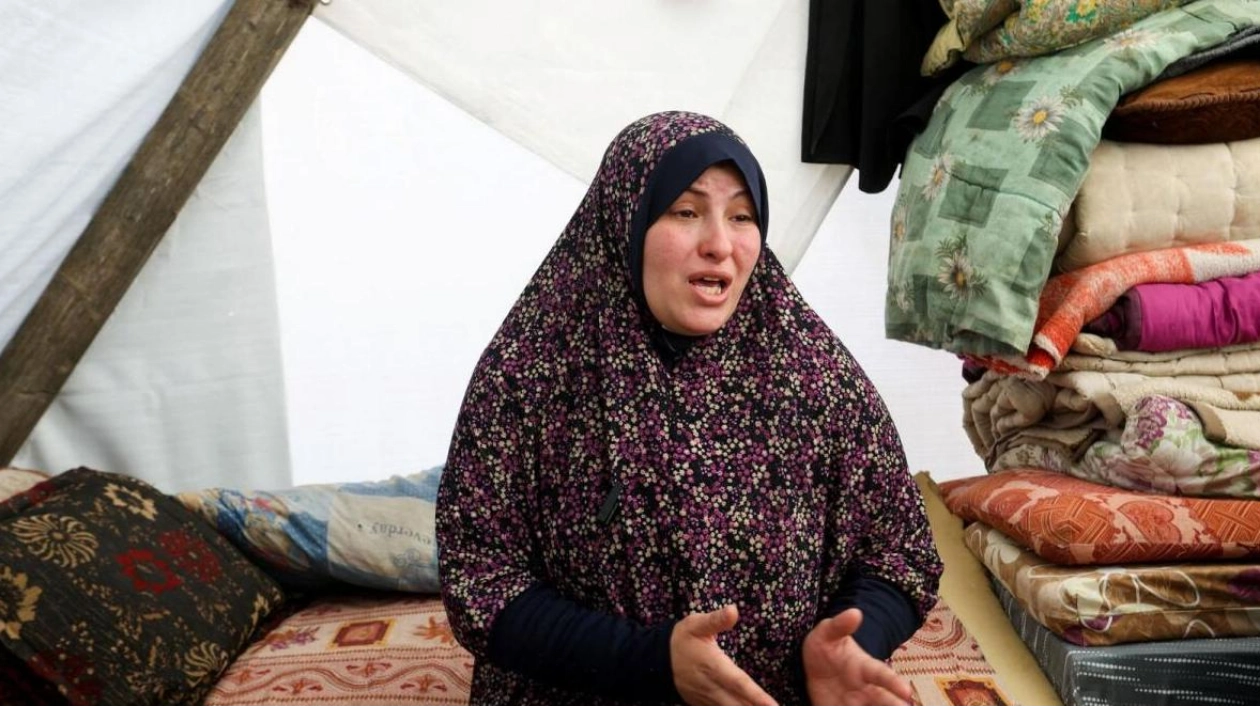In a fragile tent nestled amidst the ruins of Rafah, Palestine, Bahr experienced her contractions early one morning in May. Her baby was on the way, but how could she navigate the debris-filled streets to the hospital without a vehicle? She managed to secure a donkey cart, and as her contractions intensified, she rattled through the southern Gaza city's streets. Upon reaching Al Helal Al Emirati Maternity Hospital, she found herself tenth in line, waiting three hours just to see a doctor. Another three hours passed before she was led into an operating room where she delivered her daughter, Ghina, via Caesarean. However, Bahr soon developed blood clots. With no inpatient beds available, she returned to her tent, accepting the necessity of frequent hospital trips for treatment.
Two days postpartum, Bahr was compelled to abandon her temporary shelter as Israeli forces raided Rafah. This marked the fourth time Bahr, originally from Deir Al Balah, had to flee due to the conflict. "Since the war began, it has been a relentless struggle for survival, even for the most fundamental human right: safely bringing a child into the world," Bahr, 33, recounted in a phone interview with the Thomson Reuters Foundation from Khan Younis in late May. "It wasn't just the physical agony, but the unending anxiety—would my baby and I be alright?"
Bahr is one of countless women who have braved bombs and gunfire to give birth in a region where over 38,000 have been killed by Israeli military forces since the conflict with Hamas in the Gaza Strip commenced nine months ago, as per the Palestinian health ministry. The offensive was a response to Hamas-led militants' incursion into Israel on October 7, which resulted in approximately 1,200 deaths and the capture of 250 hostages, according to Israeli figures. Consequently, more than half of Gaza's 2.3 million inhabitants have flocked to Rafah, seeking refuge from the devastation wrought upon homes, schools, and critical infrastructure like hospitals and clinics. Over 87,000 have been injured, and the few remaining operational hospitals grapple with the daily influx of casualties from Israeli airstrikes.
In May, the World Health Organisation reported that only about one-third of Gaza's 36 hospitals and primary health care centers were partially functional. Israel asserts that attacks on hospitals are justified because Hamas allegedly uses them for military purposes—a claim vehemently denied by both hospital staff and Hamas. For new mothers like Bahr, giving birth in a warzone is merely the beginning of a harrowing ordeal characterized by perpetual fear and anxiety. "The makeshift tent offers little protection from the elements, let alone the constant dread that envelops us. It's no environment to nurture children, no place to heal from childbirth," Bahr lamented.
"My body is still recovering from childbirth, and now I must fight to ensure my daughter's survival." The UN children's agency, Unicef, has highlighted the "unimaginable challenges" faced by mothers in Gaza in obtaining adequate medical care, nutrition, and protection throughout pregnancy and postpartum. "The trauma of war directly affects newborns, leading to increased rates of undernutrition, developmental problems, and other health issues," explained Tess Ingram, Unicef's communications specialist, during a press conference in Geneva in January. "Becoming a mother should be a joyous occasion. In Gaza, it's another child born into hell," Ingram stated.
In May, the primary maternity hospital in Rafah, where Bahr gave birth, ceased admitting patients. The hospital has experienced a more than 50% reduction in staff and patients since Israeli forces entered Rafah in May, according to obstetrician Naheel Jarrour. "We had set up makeshift areas on the floor for pregnant women to receive treatment or deliver their babies due to the lack of beds," she said, noting that the ongoing conflict had barred her from reaching the hospital for weeks. Aurelie Godard, head of Medecins Sans Frontieres' medical activities in Gaza, noted that many women are being forced to give birth outside the formal medical system.
"It remains a significant challenge for many women, particularly in Rafah, to access transportation and hospitals," Godard told the Thomson Reuters Foundation. Despite their efforts, humanitarian organizations are struggling to provide services to the approximately 2,200 women who give birth in Gaza each month, she added. "My friend was stranded in the north and had to deliver her baby at home. Alone in the bathroom, she cut the umbilical cord herself with scissors," Jarrour recounted. There has also been an increase in miscarriages due to food scarcity and the stress of constant danger and displacement, according to ActionAid.
Godard highlighted that critically ill patients in intensive care are also at risk due to evacuation orders that necessitate the constant relocation of medical equipment. Other hospitals in Rafah, such as Abu Yousef Al Najjar Hospital and the Kuwaiti Hospital, have been forced to close due to evacuation orders. The hardship for new mothers persists post-birth as they attempt to care for their infants with limited access to food, power, and essential supplies. More than 495,000 people across the Gaza Strip are experiencing the most severe, or "catastrophic," level of food insecurity, according to an update from the Integrated Food Security Phase Classification (IPC), a collaboration of UN agencies, regional bodies, and aid groups.
Israel maintains that it imposes no restrictions on humanitarian aid for civilians in Gaza and has criticized the United Nations for sluggish delivery, attributing it to operational inefficiencies. Medicines are scarce, compelling new mothers to resort to improvisation in caring for their babies. "The fear is relentless. Will this homemade solution suffice? Will I inadvertently worsen the situation? This is not the kind of fear a mother should endure," expressed 23-year-old Asmaa Salah Abu Jabal in an interview with the Thomson Reuters Foundation. Forced to rely on the internet, she sought alternatives to treat her four-month-old daughter's cold.
"We cannot become doctors overnight, frantically searching the internet for answers," she said. Soad Al Masri, a 19-year-old new mother, detailed the difficulties of tending to her newborn daughter Layan in a tent made unbearable by the intense summer heat. "My daughter is uncomfortable in her winter clothes borrowed from neighbors," she said. "It is unbearably hot, and there is no ventilation." In pursuit of relief, Masri often strolls with her daughter to the shoreline, hoping for a refreshing breeze. "Every time I see my daughter struggling to breathe, it breaks my heart."






